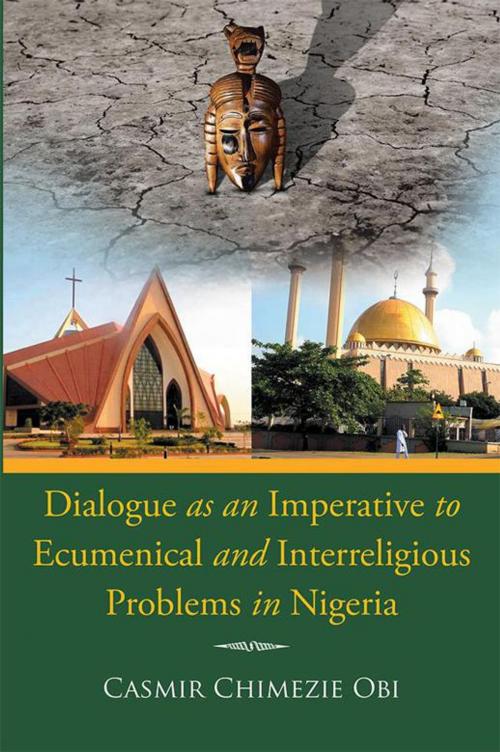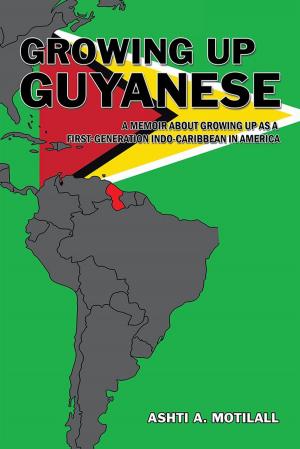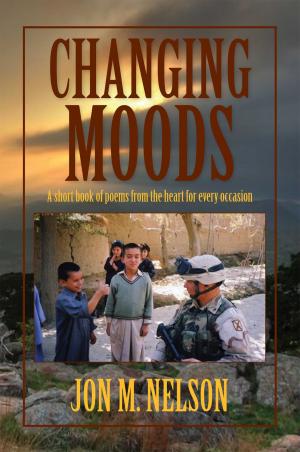Dialogue as an Imperative to Ecumenical and Interreligious Problems in Nigeria
Nonfiction, Reference & Language, Education & Teaching, Fiction & Literature, Religious| Author: | Casmir Chimezie Obi | ISBN: | 9781499094640 |
| Publisher: | Xlibris US | Publication: | August 6, 2015 |
| Imprint: | Xlibris US | Language: | English |
| Author: | Casmir Chimezie Obi |
| ISBN: | 9781499094640 |
| Publisher: | Xlibris US |
| Publication: | August 6, 2015 |
| Imprint: | Xlibris US |
| Language: | English |
The Church is the Sacrament of Communion with God and unity among all men (Cf. Vatican II doc. L.G. 1). Christ prayed for this unity amongst his adherents in accordance with the unity between him and God the Father (Cf. Jn. 17: 21). This unity will be a sign by which the outside world is to believe in him, hence calling on the Church to rise up to this demand. Efforts were made by the Church to respond to this demand, but it was at the Second Vatican Council that the search for unity became an imperative. With this Council, the Church acknowledged the possibility of Salvation for the members of other Christian traditions and people of other religions. The Church has done a lot to promote this unity, through the teachings of the Magisterium and the activities of the recent Popes. It is then important to study the situation of Nigeria, where this call of the Vatican II, has received scant response both in ecumenical and interreligious relations. Having done pastoral work in places with interdenominational and interreligious rivalry in Nigeria, I became concerned and worried. The present religious crises in Nigeria, has escalated to an issue of grave concern with the Boko Haram insurgency. My motivation is to demonstrate the teaching of the Church regarding interdenominational and interreligious dialogue within Nigeria. There has been no sustained effort to build bridges of religious unity in the country. This research will demonstrate the necessity of ecumenical dialogue as a prelude to interreligious dialogue in Nigeria. On the global level, the need for various religions to foster relationships has become an imperative. Two important bodies CAN and NIREC, will be studied in this book. The work aims at demonstrating the involvement of the Nigerian Christians and Muslims in ecumenical and interreligious dialogue. Essentially concerned with the Catholic view of ecumenical and interreligious dialogue & its application to the Nigerian situation. No in-depth study of the religions involved. It is rather the fact of their existence & the role dialogue will play with them to solve religious problems in Nigeria. Though ATR was considered in this work, but the issue of dialogue will only involve Nigerian Muslims & Christians. The research wishes to provoke further study on dialogue between ATR and any of the other two religions. Two issues involved: the reality & importance of the Catholic teachings on ecumenical & interreligious dialogue, and their application to the Nigerian situation. Key methods involved in this work are literary research and analysis, through theological, historical, critical, descriptive, analytical & expository approaches.
The Church is the Sacrament of Communion with God and unity among all men (Cf. Vatican II doc. L.G. 1). Christ prayed for this unity amongst his adherents in accordance with the unity between him and God the Father (Cf. Jn. 17: 21). This unity will be a sign by which the outside world is to believe in him, hence calling on the Church to rise up to this demand. Efforts were made by the Church to respond to this demand, but it was at the Second Vatican Council that the search for unity became an imperative. With this Council, the Church acknowledged the possibility of Salvation for the members of other Christian traditions and people of other religions. The Church has done a lot to promote this unity, through the teachings of the Magisterium and the activities of the recent Popes. It is then important to study the situation of Nigeria, where this call of the Vatican II, has received scant response both in ecumenical and interreligious relations. Having done pastoral work in places with interdenominational and interreligious rivalry in Nigeria, I became concerned and worried. The present religious crises in Nigeria, has escalated to an issue of grave concern with the Boko Haram insurgency. My motivation is to demonstrate the teaching of the Church regarding interdenominational and interreligious dialogue within Nigeria. There has been no sustained effort to build bridges of religious unity in the country. This research will demonstrate the necessity of ecumenical dialogue as a prelude to interreligious dialogue in Nigeria. On the global level, the need for various religions to foster relationships has become an imperative. Two important bodies CAN and NIREC, will be studied in this book. The work aims at demonstrating the involvement of the Nigerian Christians and Muslims in ecumenical and interreligious dialogue. Essentially concerned with the Catholic view of ecumenical and interreligious dialogue & its application to the Nigerian situation. No in-depth study of the religions involved. It is rather the fact of their existence & the role dialogue will play with them to solve religious problems in Nigeria. Though ATR was considered in this work, but the issue of dialogue will only involve Nigerian Muslims & Christians. The research wishes to provoke further study on dialogue between ATR and any of the other two religions. Two issues involved: the reality & importance of the Catholic teachings on ecumenical & interreligious dialogue, and their application to the Nigerian situation. Key methods involved in this work are literary research and analysis, through theological, historical, critical, descriptive, analytical & expository approaches.















